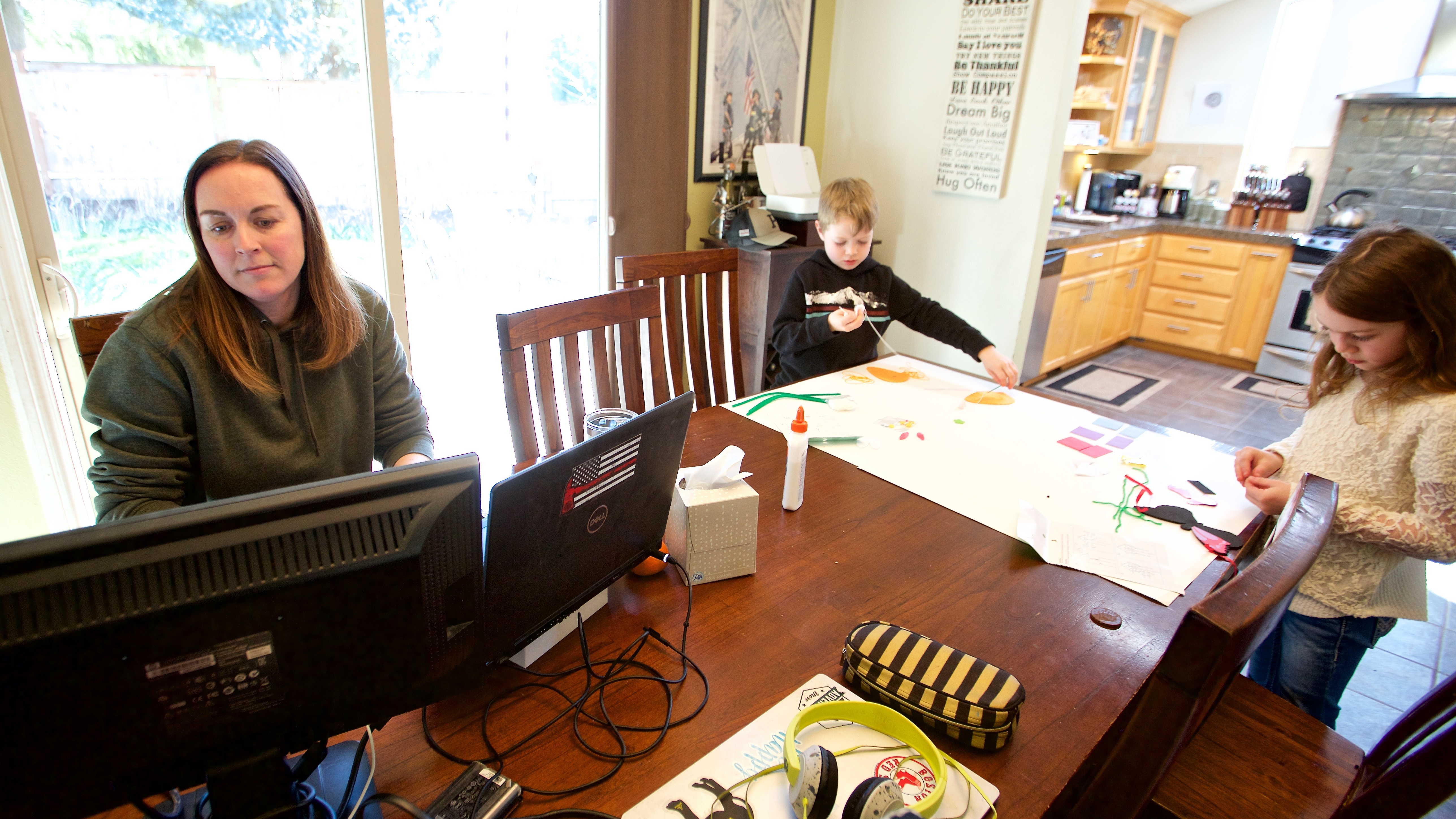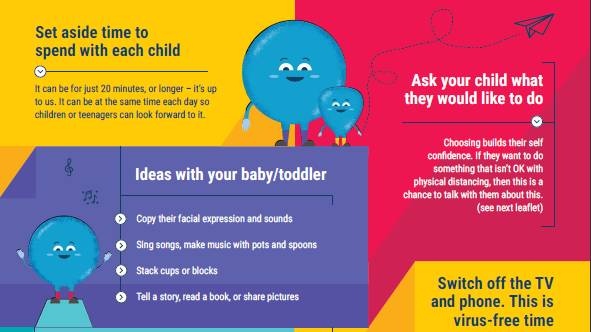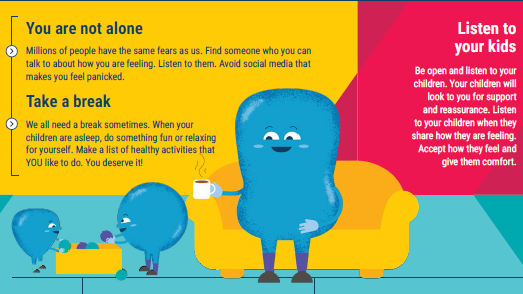
Kim Borton working from home while her children Logan Borton, center, age 6 and Katie Borton, age 7, as they work on an art project in Beaverton, Ore. / AP Photo
Kim Borton working from home while her children Logan Borton, center, age 6 and Katie Borton, age 7, as they work on an art project in Beaverton, Ore. / AP Photo
Eighty-two countries in the world are in a partial or full lockdown. Sixty percent of children around the world, or 1.4 billion youngsters, are being quarantined at home, according to UNICEF. The result for many is that both the parents and their children are facing daily challenges of stress and anxiety.
Jennifer Katzenstein, director of Psychology and Neuropsychology and Pediatric Neuropsychologist at Johns Hopkins All Children's Hospital spoke to CGTN about some of the ways parents can manage the stress, and how to spot situations that might require the help of a professional.
Tip 1: Set a schedule
"Family routines are being significantly impacted, and many of us struggle with not having clear expectations and not having routine," said Dr. Katzenstein.
Setting a schedule for weekends and weekdays, so that everyone knows what to expect of their days, maintaining contact with family and friends, and exercise are some of the recommendations the pediatric neuropsychologist has for parents. But she adds that there should be time to check in on any concerns or fears children or teens might have.
"During this time, it's important to listen to their concerns and reassure your child that everyone is doing everything they can to stay healthy and safe. This daily conversation is a great habit to keep even after the coronavirus outbreak passes," she noted.
For parents working from home, she recommends setting up a system so the kids know when they can't be disturbed, like putting a stop sign on the door or use a red/green light system.
Read more: Tantrums and bonds: How families are dealing with COVID-19 quarantines

COVID-19 parenting tips from WHO. / WHO
COVID-19 parenting tips from WHO. / WHO
Tip 2: Know each other's coping skills
Because it's really difficult to find balance, Dr. Katzenstein also recommends that everyone has a place in the home to calm down and relax, as well as knowing each other's coping skills, like deep breaths, meditation, reading a book, listening to music, journaling.
Coping skills are crucial because "witnessing a parent in anxiety can be unsettling for kids" since they look to parents for information and guidance in this situation. "If we are responding in an anxious state and fearful, then our children are likely to feel unsafe and to be upset too," she noted.
Parents must try to remain calm and not let anxiety guide their behaviors. "It is okay to show our kids our emotions. Even better if you can explain why you reacted the way you did, and then outlining steps you would have taken to change your behavior or the way you managed the situation to make it more positive," she explained.
Learn more: Deep breathing exercises to combat COVID-19
Dr. Katzenstein sees many impacts on children from schools being closed. Besides missing their friends, they also feel the pressure from the demands of virtual school and amount of work they need to do. "This appears to be exacerbating and causing increased stress, anxiety, and frustration for many."
Tip 3: If it impacts the ability to function, check in with a professional
If stress, anxiety, and frustration begin to significantly impact functioning, she recommends checking in with a doctor or mental health professional.
Signs that this is happening include changes in sleep, in appetite, not doing previously enjoyed activities, become more frustrated, irritated, and/or easily set off.

COVID-19 parenting tips from WHO. / WHO
COVID-19 parenting tips from WHO. / WHO
From the WHO: One-on-one time and compassion
The World Health Organization also released a set of "Tips for parenting during the coronavirus (COVID-19) outbreak," divided into six categories, like "keep it positive" or "structure it up."
The organization recommends parents set aside at least 20 minutes with each child, switching off TV's and phone to create a virus-free time.
On another note, the use of positive language like "please put your clothes away" instead of "don't make a mess" is more helpful, while at the same time opting for remaining calm and also evaluating if the child can really do what you are asking.
The guideline set also has makes a note on following trustworthy information sources and being "heroes not bullies," by explaining to the child "that COVID-19 has nothing to do with the way someone looks, where they are from, or what language they speak."
"Tell your child that we can be compassionate to people who are sick and those who are caring for them," says the WHO.